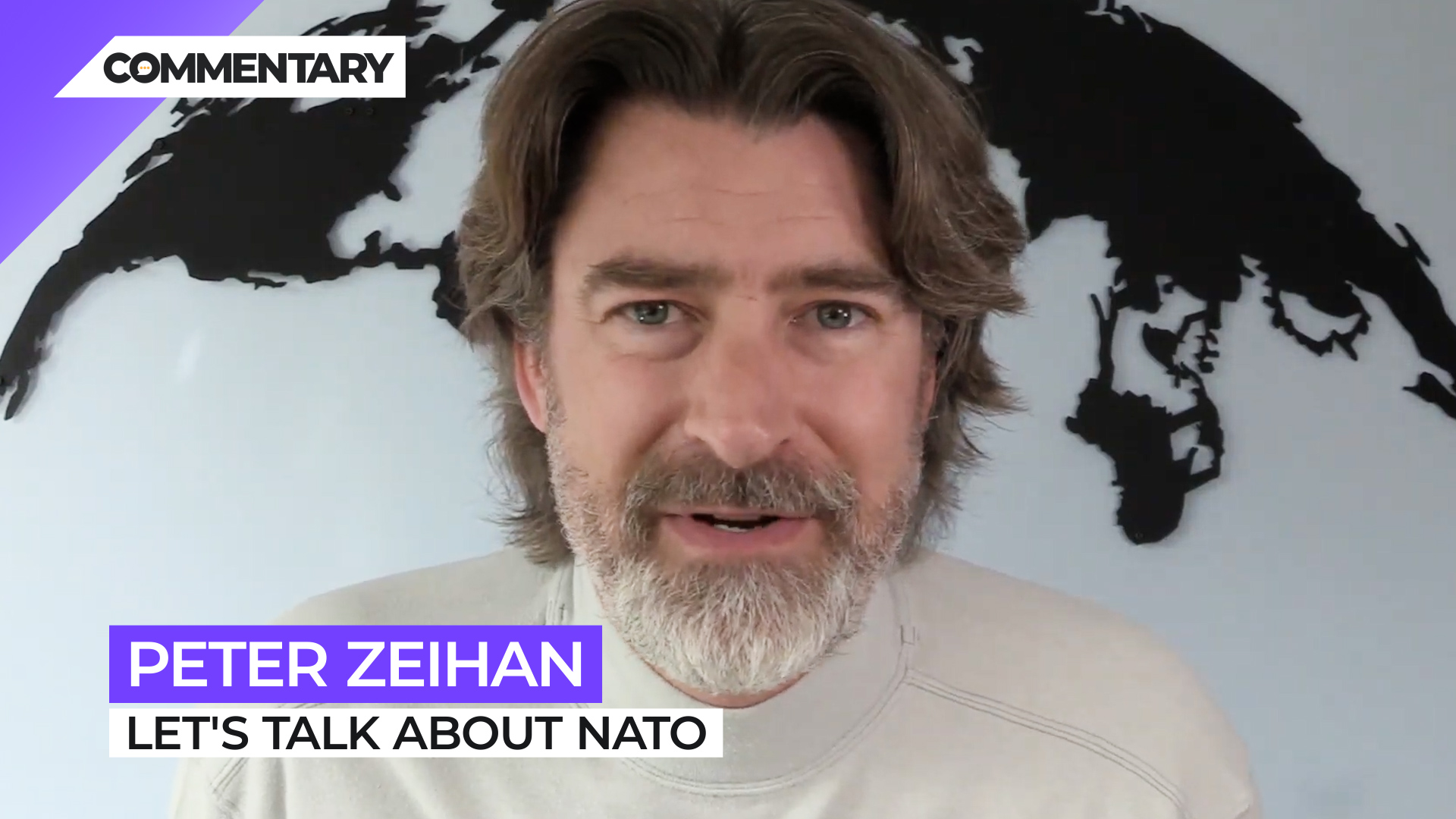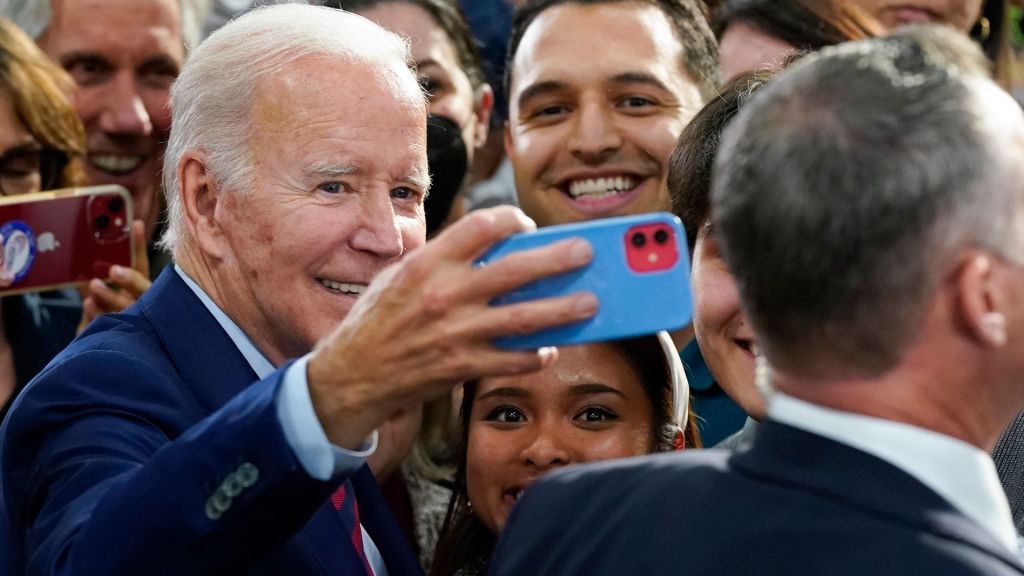
Commentary
-
Our commentary partners will help you reach your own conclusions on complex topics.
Hey, everybody, Peter Zeihan here coming to you from Colorado. And today we’re gonna talk about NATO.
Now, NATO is the Alliance that defends Europe against the Soviets or now the Russians. And it has had a weird and winding road. Originally formed during the 1950s and originally brought in the West Germans when they were still occupied, NATO has been the foundation of all security planning that matters in the European sphere despite the efforts of some countries, such as say the French, especially in the two thousands to build something parallel.
The Americans have always said that NATO is the first and foremost commitment, and if you want another security agreement, that’s fine. You can make it without us. But anything that is dedicated to NATO has to remain dedicated to NATO unless you just want to leave. And very few countries were ever willing to seriously consider that at all. So it’s always been NATO or nothing.
Now, that doesn’t mean that the Alliance has always gotten along. Doesn’t mean that the Alliance has always agreed on everything. There are operations that technically have had the NATO stamp, but they use a coalition of the willingest situation in order for other countries to abstain, still use NATO assets. And that has meant that no one has done anything in a unilateral matter, but also no one has done anything all at once.
Well, now that all the Europeans are furious with the Russians, we have actually greater tightness among the Europeans, NATO and non-NATO alike, than we have seen in Europe quite literally since the Treaty of Westphalia in the 11th century. So this is kind of a big deal. And it is in this environment that two traditionally neutral countries, Finland and Sweden, are seriously considering joining the Alliance.
Now on April, what was the date? April 13, the PMs from both Sweden and Finland got together to have a joint conference talking about their plans to discuss NATO within the country.
In Finland, that conversation is gonna start this coming week, and in Sweden, within a month. It’s very possible that we’re gonna have applications from both countries looking to apply for membership well before the beginning of summer in Europe. And that would suggest that ratification to be completed, not just this year, but very, very soon, probably before August. And right now I’d say it’s probably a two in three chance that each individual country will join, and that they’ll join together.
We can go into domestic politics, but really the issue for both countries is their longstanding stance because they haven’t seen themselves as having a choice until now.
So let’s start with Finland cuz it’s a simpler case. Finland, as European countries go as countries go, it’s not all that old, only got its independence in the early 19-hundreds, but it found itself as a young country butting heads with the Soviet superpower.
Stalin ordered an invasion of Finland in the early days of World War II, and the Fins fought the Russians to a standstill. In some battles, there were 40 to one casualty ratios going against the Russians because, well, this is gonna sound familiar with what’s going on in Ukraine, logistical problems, morale problems, equipment problems, and the Fins were fighting for their homeland.
So the Fins were on skis, fighting Russians who were not. And the Fins were using grenades and tossing them into the trucks that were full of Russians. And at night the Russians had a choice between freezing to death or lighting a campfire so that these Finish snipers could pick them off.
It all was fun and games until the snow melted, and then Stalin launched a second phase of the invasion, and the Fins very quickly sued for peace and gave Stalin everything that he had asked for. And then some.
And so about a quarter of the population of Finland end up having to physically relocate from now conquered lands and move into what is today recognized as the country of Finland.
Now because of that searing experience and because Stalin actually respected the Fins, Finland was allowed to go through a process with neutralization that is now known today as Finlandization.
And the idea is that Finland can decide anything it wants to about its economic system and its political system, but on all security matters, the Soviet Union had a hard veto.
So Finland, despite wanting to, never joined NATO. That was part of the post World War II deal.
Well, now from the Fins point of view, the Soviet bear is long gone. And while the Russians are nowhere even close to the strength that the Soviet Union had, we now have a Russian system that is acting more aggressively than even Stalin did. So from their point of view, this change in the defensive and offensive posture of the Russian state combined with its lack of capacity provides both the impetus and the willingness of the Fins to consider a shift.
The last poll I saw suggested about two thirds of Fins supported membership. That’s almost double what it was less than a year ago, and the numbers probably going up with each uncovering of a war crime in Ukraine.
So Finland specifically, I’d say it’s a shoe in, militarily capable, very competent. Yes. They’ve got a long border, 1300 kilometers with the Russians, but it’s not like the Russians can even consider launching a two-front war here. So if the Fins did apply, they would be approved in weeks, if not days. And we’d probably have token forces, at least from the United States, the United Kingdom, Germany and France and Turkey. You know, the major powers within NATO, deployed to Finland to underline during the transition process that this is now an Alliance member. So that’s, that’s Finland.
Sweden is a little weird. So Sweden used to be a superpower. If you go back a half a millennia, there was a time when Sweden was the country that had the geography that you really wanted. All the European countries were banging against each other, cuz they were right on each other’s faces, and there was no way you could develop without threatening someone, but Finland was on the I’m sorry, but Sweden was the, on the other side of the Skagerrak and the Bay of Bothnia and the Baltic Sea in general and so controlled what we now consider Scandinavia specifically what today is Norway and Finland, and was insulated from everybody else.
So once the Swedes were able to consolidate power in that area, they could then project power south and into Europe proper. And they were a major, major player. And for a while, the most powerful European country.
It didn’t last as technologies evolved, especially in things like fire arms, the Swedes found themselves overextended and exposed to larger populations that were becoming more and more consolidated.
And in a series of conflicts starting with the 30-years war and ultimately culminating in the Napoleonic wars, the Fin, the Swedes faced a series of setbacks and strategic defeats until ultimately they retreated back to what we now know as Sweden today.
Now, that meant they’re a little gun shy. Swedes are armed. They’re not prickly, they’re prepared, but they have gone out of their way for the last two centuries to avoid any sort of entanglement in someone else’s war or someone else’s Alliance.
But once again, the situation has changed. Under the Soviet period, Sweden very, nearly got a nuclear deterrent, but the nonproliferation treaty ultimately convinced Sweden that it wasn’t necessary.
But now that the Russians have the withdrawn from most strategic arms reduction talks, the Swedes have a very simple choice they have to make. One, do they go nuclear or two, or do they join the coalition that all of their Nordic and Scandinavian family members are already a part of because Iceland, Norway, Estonia Latvia, Lithuania, Denmark, they’re all already in NATO?
And if the Fins join, the Swedes will be the last ones out. And as the Finish and the Swedish prime ministers were saying, there are long-term and short-term considerations. There are pros and cons for whatever they do. But at the end of the day, Russia has changed. And at the end of the day, the decisions that now most affect Swedish security are not made in Stockholm. They’re made in NATO countries.
And the only way that Sweden can reliably influence that decision-making process is to join. So Sweden like Finland, armed, Sweden like Finland, competent, Sweden like Finland, an excellent defense establishment.
If they applied to join, they would be ushered in a matter of days and weeks. We’re gonna know very, very soon, probably before June 1st, one way or the other.
Okay. So that just leaves the question of what the Russian’s gonna do. Not a lot. The Russians can’t fight a two-front war right now. It’s certainly not what the forces have deployed, not with the record of logistics.
Also, the Fins and especially the Swedes have significantly better air power than anything that the Russians have demonstrated so far. And since the Russians like to fight the wars at the end of rail lines, you get a few airstrikes into Russia proper, you blow up a few bridges and some rail lines and, and that’s that.
Uh, so I don’t see the Russians doing anything more than growl at this point.
The real fight is going to stay in Ukraine, and as long as we don’t have regular NATO forces in Ukraine during the war, I don’t think the Russians are gonna escalate at least not without a significant change in circumstance. And we haven’t seen anything like that in the first six weeks.
Okay. That’s everything from me, until next time.
-
How could RFK Jr. impact 2024 election?
Many Americans speculated about how a potential RFK, Jr. campaign might impact the 2024 elections. While RFK is neither a Democrat nor a Republican, many of his positions favor Donald Trump’s base over Joe Biden’s, particularly his various conspiracy theories on a wide range of subjects. Straight Arrow News contributor Peter Zeihan says that GOP…
-
Global warming won’t impact Russian-Chinese shipping
The seas above Russia’s northern coastline are too frozen for shipping, but some have wondered whether global warming might change that in the decades to come. If those seas were to become navigable for commercial shipping, new direct routes between Russia and China could theoretically open up. Straight Arrow News contributor Peter Zeihan throws more…
-
Can other nations replicate success of US shale revolution?
The “shale revolution” has provided the United States with a bountiful domestic supply of oil. But extracting oil from shale is a highly technical process, and it is also dependent on specific geological formations. Straight Arrow News contributor Peter Zeihan tackles the question of whether or not other nations might be able to replicate the…
-
Peace between Israel and Iran, at least for now
A series of recent airstrikes between Israel and Iran inflamed fears of a wider regional war erupting in the Middle East. That concern now seems to have paid off, after third-party countries around the world successfully intervened and talked down military hardliners in both Israel and Iran in order to avoid such an outcome. Israel’s…
-
Global internet in a precarious state, but that could be a positive
Over 500 underwater cables span over 870,000 miles worldwide, serving as the foundation of the modern global internet. Despite their critical role in facilitating communication, these cables often go unnoticed, even as the amount of data transmitted through them has surged. So what happens if the cables fail? Straight Arrow News contributor Peter Zeihan contends…
Latest Stories
-
 Getty Images
Getty Images
Biden uses NFL draft ad to try to connect with young voters
-
 Getty Images
Getty Images
Powering pot: Energy for US cannabis industry could electrify 13.5M homes
-
 Getty Images
Getty Images
Allies plan for Trump to have more control over interest rates
-
 Getty Images
Getty Images
FDA: Bird flu found in 1/5 commercial milk samples, suggests greater spread
-
 Reuters
Reuters
China permanently deploys warships to second overseas base
Popular Opinions
-
In addition to the facts, we believe it’s vital to hear perspectives from all sides of the political spectrum.
Latest Opinions
In addition to the facts, we believe it’s vital to hear perspectives from all sides of the political spectrum. We hope these different voices will help you reach your own conclusions.
The opinions published in this section are solely those of the contributors and do not reflect the views of Straight Arrow News.

















Latest Commentary
We know it is important to hear from a diverse range of observers on the complex topics we face and believe our commentary partners will help you reach your own conclusions.
The commentaries published in this section are solely those of the contributors and do not reflect the views of Straight Arrow News.
Peter Zeihan
Geopolitical StrategistGlobal warming won’t impact Russian-Chinese shipping
Can other nations replicate success of US shale revolution?
Peace between Israel and Iran, at least for now
Dr. Frank Luntz
Pollster and Political Analyst‘Take the job seriously’: Why Americans are fed up with Congress
‘If we can shrink it, it will stop growing’: Americans talk debt, deficit
‘I don’t think they care’: Undecided voters explain their reasons
Pete Ricketts
U.S. Senator for Nebraska